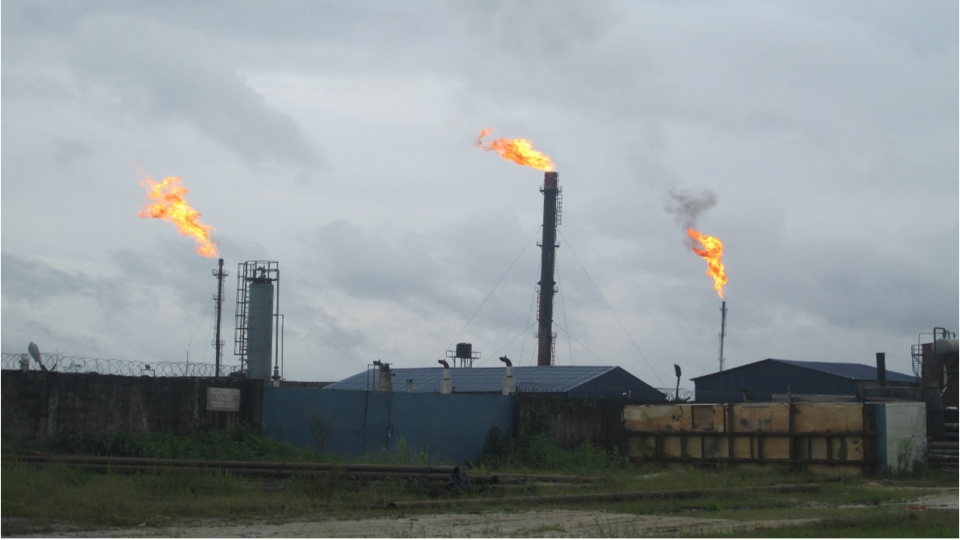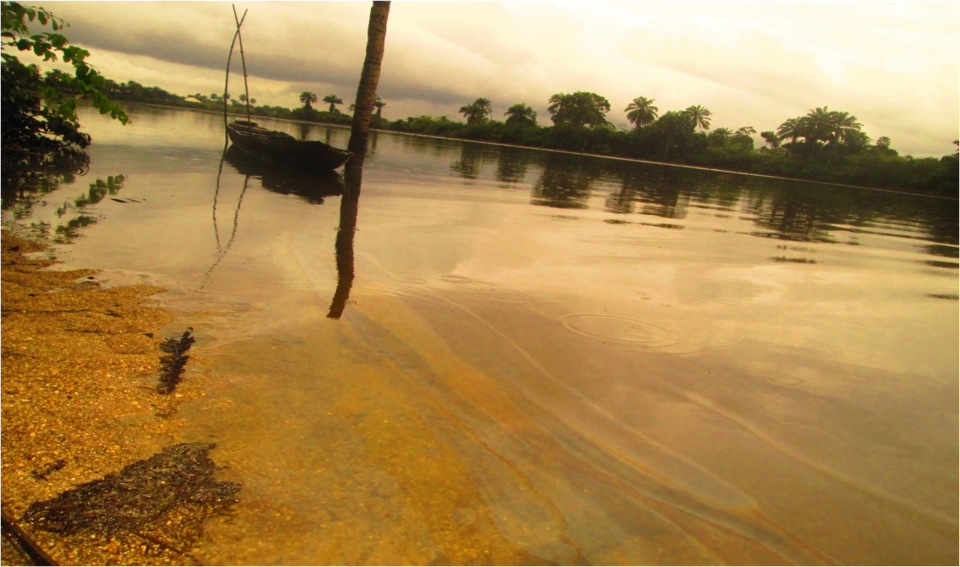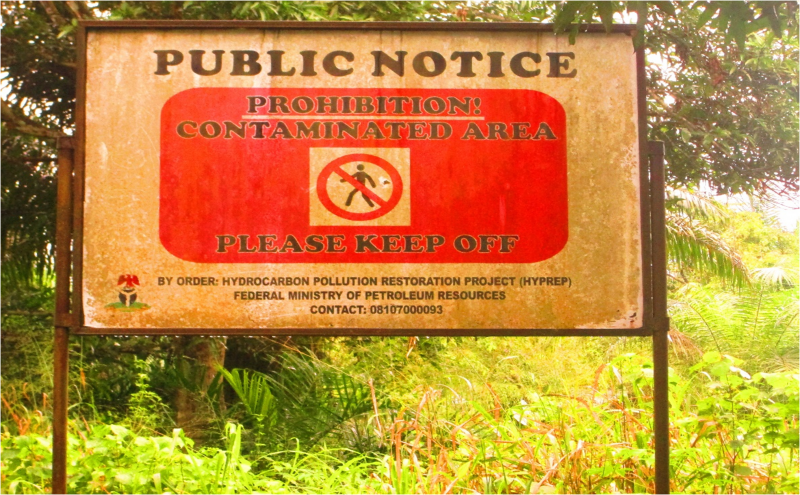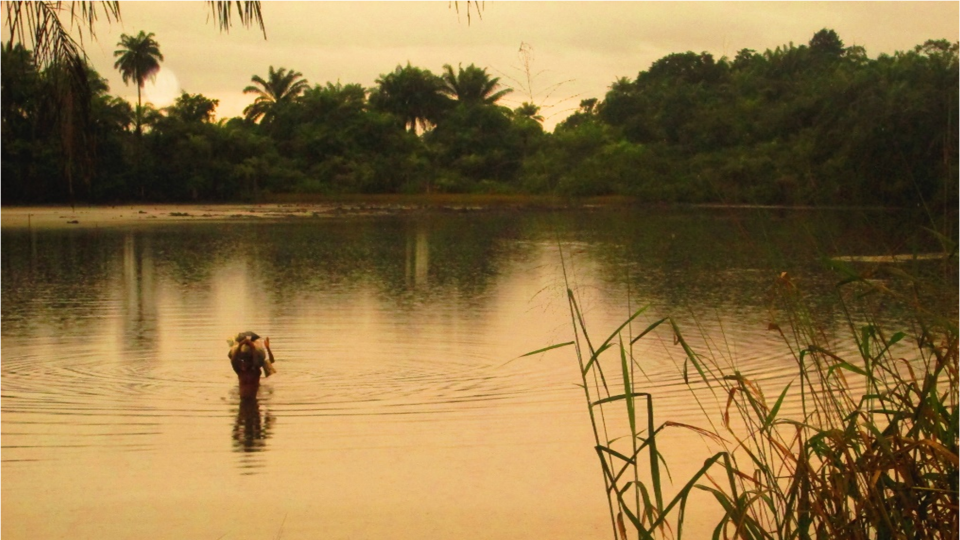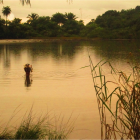The Niger Delta has been extensively studied in regard to the environmental, social, economic, and political issues that undergird violent militancy in the region. The cultural dimension, however, has received limited attention. Few studies have examined the linkages between the environment, culture, and security—and of these, fewer still pay attention to the role of traditional institutions in influencing environmental outcomes and security. This inadequately examined and uncaptured issue is important in providing a nuanced understanding of the dynamics of environmental changes and dysfunctional social transformation in the Niger Delta.
With crude oil reserves estimated at approximately 28.2 billion barrels and natural gas reserves at 165 trillion standard cubic feet (scf), Nigeria’s Niger Delta region has Africa’s largest oil and gas reserves and is the sixth-largest oil producer in the world. The Niger Delta’s oil resources have positioned the region in the global economic landscape and generated millions of petrodollars for Nigeria. The Niger Delta also has the third-largest wetland and coastal marine ecosystem in the world and the largest mangrove forest in Africa. Local people derived their sources of livelihood and sustenance (farming, fishing, timber lumbering, and trade) from the rich mangrove forests, whose products constituted the dominant export trade before they were displaced by oil.
In addition, the Niger Delta has one of the most delicate and sensitive ecological zones in the world; any adverse impact quickly runs through the entire ecosystem. The region has been identified by international environmental experts as one of the world’s most severely petroleum-impacted ecosystems due to the extraction of oil by multinational corporations without adhering to global environmental standards. This extensive environmental degradation creates economic hardship for local people as their ancestral lands are rendered agriculturally useless, depriving them of their traditional livelihoods. After decades of frustration, the environmentalist and playwright Ken Saro-Wiwa championed the nonviolent campaign for environmental justice in the 1990s through the Movement for the Survival of the Ogoni People, bringing the plight of the Niger Delta into the international limelight. Ken Saro-Wiwa and eight other Ogoni activists were subsequently arrested in 1994 by the Nigerian military junta for allegedly murdering four Ogoni chiefs—the activists were charged with treasonable felony and hanged on 10 November 1995. This changed the contours of the nonviolent campaign and set in motion complex, multidimensional conflicts that launched a vicious cycle of violence and insecurity.
The violent agitations by militants sometimes turned to illicit activities such as illegal oil bunkering, kidnapping, and the destruction of pipelines, making the region a global center of violent conflict and criminality. The struggle assumed complex dimensions, bringing to the fore various actors, including the local women who were noted for their traditional supporting roles in the sustenance of the family. There is increasing evidence of women’s restiveness and active involvement in violent militancy—not only against the oil multinationals and the Nigerian State, but also against the excesses of traditional authority structures.
It is important to underscore the role of traditional leaders in the dysfunctional social conflicts that have engulfed the Niger Delta. Traditional institutions administered by local chiefs, secretive cults, and priests served as social control mechanisms which the young were expected to abide by. Traditional leaders played a significant role in upholding indigenous cultural values and fostering peace, societal cohesion, and harmony in their domains. In local communities where traditional institutions have been weakened by their co-optation into oil politics by the government and oil companies, their viability as traditional social control mechanisms has been significantly eroded.
Societal solidarity and harmony based on the viability of traditional institutions, which characterized indigenous communities before the commencement of oil exploitation, have faded into the distant past. The community leaders have been co-opted and used by powerful oil corporations and the government, who have induced them to look the other way in the face of environmentally damaging practices in their communities. Oil money syndrome, which has to do with the prioritization of getting access to the largesse of oil companies for self-enrichment, underpins the support provided by state officials and traditional authorities to multinational corporations. In the process, traditional leaders have eroded their legitimacy and respect in the eyes of their people. The corrupt practices of these community leaders inadvertently make them culpable in fanning the embers of division and exacerbating the climate of insecurity in the Niger Delta.
The frustrated youth mostly have the mindset that violence is the only option available to them. The insecurity in the region has reached unprecedented levels, aggravating the environmental degradation of the fragile ecosystem and causing huge losses of oil revenue to the Nigerian government and oil multinationals. The state’s actors and oil multinationals use a variety of local actors to affirm and support their plunder and damage of the natural environment to the detriment of the majority of the impoverished local people. Local communities are penetrated by these powerful actors, which invariably leads to a complex web of environmental, social, economic, political, and cultural outcomes. These complex interactions have an enormous bearing not just on local ecosystems, resource utilization, and management, but also on the viability of traditional institutions, cultural values, and community governance. Ultimately, local people have become enmeshed in the environmental problems that constitute the main driver of the agitations, raising crucial issues about the future trajectories of these struggles for environmental justice.
How to cite
Babatunde, Abosede Omowumi. “Landscape of Insecurity: The Intricacies of Environmental Changes in Nigeria’s Oil-rich Niger Delta Region.” Environment & Society Portal, Arcadia (Summer 2018), no. 17. Rachel Carson Center for Environment and Society. doi.org/10.5282/rcc/8368.
ISSN 2199-3408
Environment & Society Portal, Arcadia
 This work is licensed under a Creative Commons Attribution-ShareAlike 4.0 International License.
This work is licensed under a Creative Commons Attribution-ShareAlike 4.0 International License.
2018 Abosede Omowumi Babatunde
This refers only to the text and does not include any image rights.
Please click on an image to view its individual rights status.
- Adesina, Olutoya C. “Conflict in Africa: Negotiating Space for Indigenous Conflict Management Strategies in the Contemporary Age.” In Indigenous Conflict Management Strategies in West Africa: Beyond Right and Wrong, edited by Akanmu G. Adebayo, Brandon D. Lundy, Jesse J. Benjamin, and Joseph Kingsley Adjei, 23. London: Lexington Books 2015.
- Ake, Claude. Democratization of Disempowerment in Africa. CASS Monograph Series, no. 1. Lagos: Malthouse Press Ltd., 1994.
- Arias-Maldonado, Manuel. Environment and Society: Socionatural Relations in the Anthropocene. New York: Springer Briefs in Political Science, 2015.
- Dietz, Kristina and Bettina Engels. “Contested Extractivism, Society and the State: An Introduction.” In Contested Extractivism, Society and the State: Struggles over Mining and Land, edited by Bettina Engels and Kristina Dietz, 3. London: Palgrave Macmillan, 2017.
- Ibeanu, O. “Janus Unbound: Petrobusiness and Petropolitics in the Niger Delta.” Review of African Political Economy 29, no. 91 (2002): 163–167.
- Obi, Cyril I. “Oil Extraction, Dispossession, Resistance and Conflict in Nigeria’s Oil-Rich Niger Delta.” Canadian Journal of Development Studies 30, no. 1–2 (2010): 219–36.
- Watts, M. J. “Petro-Insurgency or Criminal Syndicate? Conflict and Violence in the Niger Delta.” Review of African Political Economy 34, no.114 (2007): 637–60.


